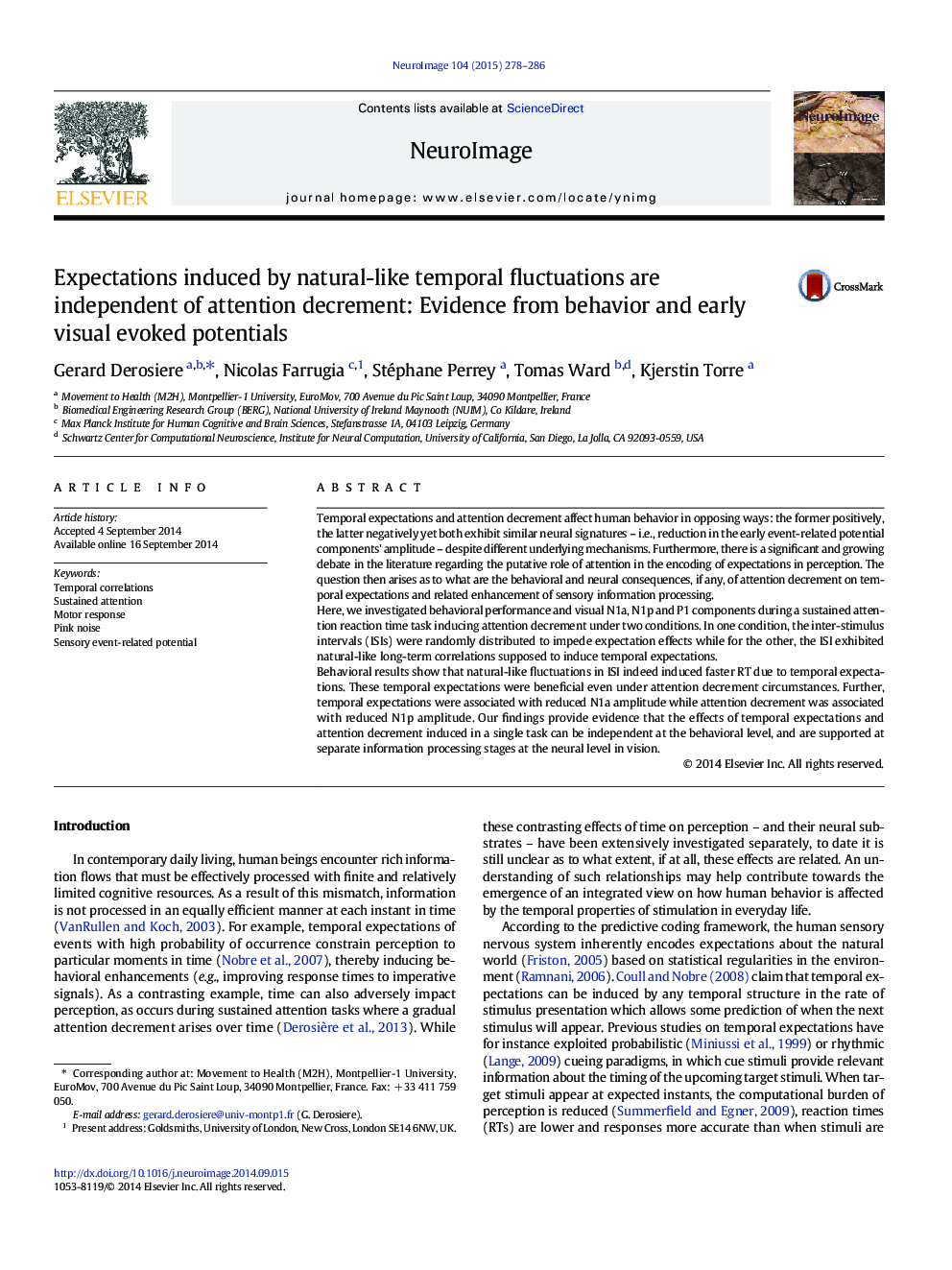| Article ID | Journal | Published Year | Pages | File Type |
|---|---|---|---|---|
| 6026480 | NeuroImage | 2015 | 9 Pages |
â¢Attention decrement and temporal expectations were investigated in a single task.â¢Temporal expectations were induced by long range, fractal fluctuations.â¢Temporal expectations remain present under attention decrement.â¢Temporal expectations induce an N1a reduction, but leave N1p unaffected.â¢Attention decrement induces an N1p reduction, but leaves N1a unaffected.
Temporal expectations and attention decrement affect human behavior in opposing ways: the former positively, the latter negatively yet both exhibit similar neural signatures - i.e., reduction in the early event-related potential components' amplitude - despite different underlying mechanisms. Furthermore, there is a significant and growing debate in the literature regarding the putative role of attention in the encoding of expectations in perception. The question then arises as to what are the behavioral and neural consequences, if any, of attention decrement on temporal expectations and related enhancement of sensory information processing.Here, we investigated behavioral performance and visual N1a, N1p and P1 components during a sustained attention reaction time task inducing attention decrement under two conditions. In one condition, the inter-stimulus intervals (ISIs) were randomly distributed to impede expectation effects while for the other, the ISI exhibited natural-like long-term correlations supposed to induce temporal expectations.Behavioral results show that natural-like fluctuations in ISI indeed induced faster RT due to temporal expectations. These temporal expectations were beneficial even under attention decrement circumstances. Further, temporal expectations were associated with reduced N1a amplitude while attention decrement was associated with reduced N1p amplitude. Our findings provide evidence that the effects of temporal expectations and attention decrement induced in a single task can be independent at the behavioral level, and are supported at separate information processing stages at the neural level in vision.
